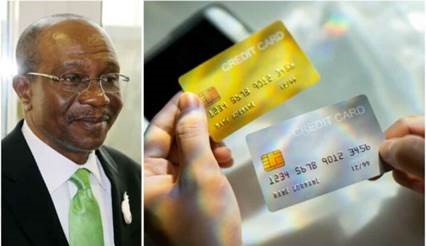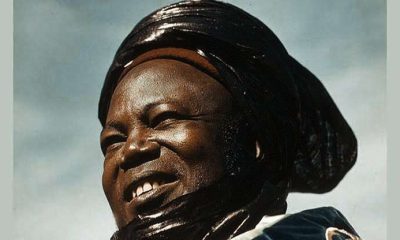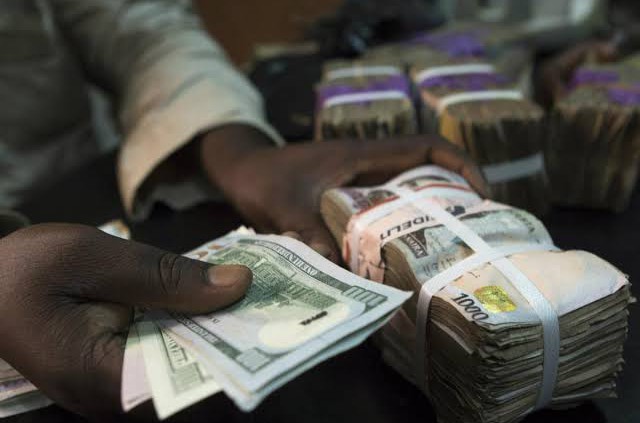Op-Ed.
Imperatives of the CBN’s cash policies

The cash policies recently introduced by the Central Bank of Nigeria, CBN, are still attracting considerable attention just a few days to the deadline on the withdrawal of the old naira notes. The other is the cash withdrawal limits, which, after several reviews, seems to have been generally welcomed by most people.
However, both policies are targeted toward the same objective, namely, reducing the volume of cash transactions in the economy. Last week, the Speaker of the House of Reps threatened to evoke legislative power of the body to issue a warrant of arrest agàinst the CBN governor, Mr. Godwin Emefiele for honouring invitation to explain the rationale of the cash policies.
We, at the Business Hallmark, welcome the cash withdrawal limits being enforced by the Central Bank of Nigeria, given the objectives and merits, especially in view of its expected salutary effect on the coming general elections. President Buhari recently defended the policy on the basis of the elections and we agree with him.
There is no time a change would be comfortable to everybody. Even if delayed for the next 10 years, some people would still complain. A recent case in point is the National Identification Number, NIN, which, after three consecutive deadlines spanning three, still had Nigerians scrambling to cope at the end. Change is always prone to resistance. Yet, without change, there can be no progress. We advise everyone to give it a chance.
The measure is not entirely sudden but only amplifies the cashless policy of the Central Bank, which has been on the table since 2012 and which has been pilot-tested in some states, with salutary results. But the unbanked population, estimated at 55.5 percent, today, remains too high.
We acclaim the measure as a masterstroke to disrupt the inertia over the cashless policy. It would galvanize more Nigerians to have bank accounts and to domicile their monetary transactions between those accounts through clearing cheques, point-of-sale (POS) systems and other electronic transfer applications, which are more secure, safer and faster, in accordance with the trend throughout the world, in place of risky withdrawal, movement and deposit of large cash amounts.
In the first announcement, on December 6, 2022, cash withdrawal over the counter of banks and from Automatic Teller Machines (ATMs) was limited to N100,000.00 (One Hundred Thousand Naira) per week for individuals and N500,000.00 (Five Hundred Thousand Naira) per week for corporate bodies. These limits were later revised, on December 21, 2022, to N500,000.00 (Five Hundred Thousand Naira) per week for individuals and N5,000,000.00 (Five Million Naira) per week for corporate bodies, in response to the outcry of different interest groups.
Withdrawals over the limits would even be permitted but will attract cash processing fees. Commencement was scheduled for January 9, 2023, countrywide. But with the increase in withdrawal limit the CBN has used the new naira design measure to constrain access to cash which is causing the hysteria among key stakeholders, such as politicians.
The ultimate objective is to rein in cash outside the banking system, for more effective monetary and fiscal policies. Money outside the banking system is largely uncontrollable – the way water in a basket is uncontrollable – which renders monetary policies (on interest rate, exchange rate, lending rate, cash reserve ratio and cash-deposit ratio and so on) largely ineffective, leading to macro-economic instability. It is estimated that up to 70 percent of the money in circulation is outside the banks.
The policy is also intended to reduce inflation by reducing the volume of cash available to people and, thereby, the velocity of money, from one party or person to the other. Cash-mopping has become all the more imperative in the face of Federal Government’s unguarded resort to Ways and Means financing, which has increased money supply and cash outside the banking system dramatically, thereby, pouring more fuel on the inflationary fire.
Perhaps, the policy would curb the pandemic of vote-buying and manipulation, which predatory politicians have, all along, deployed to subjugate and foist themselves on the people, at the expense of candidates, who could offer better service to the country but do not have the war chest. It might also reduce the attraction of kidnapping and other crimes significantly dependent on huge cash withdrawals, as victims and their benefactors would no longer have easy access to quantum cash for ransom.
The consequent increase in the banking population will improve tax assessment and collection and swell public revenues. Every bank account Biometric Verification Number (BVN) could be linked to the National Identity Number (NIN) for a more accurate capture of the taxpayers’ cash-flows and taxable income.
Some of the country’s revenue mobilization challenges arise from shallow tax penetration and returns. The rate of tax evasion and tax avoidance is very high. Many potential taxpayers are not captured, at all and most of those, who are captured, often, under-declare their income and pay only a fraction of what they ought to pay to the government, which has no way to validate the returns, empirically.
Indeed, the advantages of the policy are numerous and we could go on and on. That is not to say that there are no downsides. But the fact is that the downsides do not outweigh the advantages and can be addressed in the course of policy implementation, as their profiles manifest. There will never be a perfect time and the test of the pudding is in the eating. Above all, the policy is intentional about cultural change and has to be vigorously sold despite initial challenges.
We believe that the projected handicap for the masses, particularly, in rural areas, who are accustomed to cash transaction, is too speculative and exaggerated. Most of these transactions would be adequately covered within the approved cash limits. On the issue of low bank branch and internet, ATM and POS penetration, our view is that there will be a multiplier effect on all fronts in the course of implementation that addresses the shortages, organically.
Simultaneously, the policy would reduce the need for physical bank branches as well as queues inside the banking hall.
On the whole, the cash limit policy should be allowed to thrive.
But the CBN must continuously research it to make it more people-friendly and collaborative with all parties that have an input. The CBN must also educate the people and promote the policy more vigorously, especially at the grassroots.
We must add that, for Nigeria to grow and develop, there is no substitute for strong and independent institutions and the Rule of Law. The Central Bank, in particular, must be allowed the independence to take every action necessary for macro-economic stability, dispassionately and not under any external or pecuniary influence.
It is for this reason that we call for caution and circumspection in the hide-and-seek game between the Department of State Services (DSS), the House of Reps, and the CBN. The fact that the allegations were mounted upon CBN’s proposal of cash withdrawal limits and redesign of Naira notes would seem to taint them with ulterior motive in the public space, where the veracity is yet to be established. We commend Mr. President for backing the policies..









